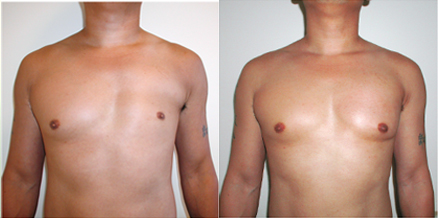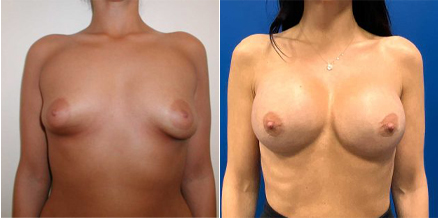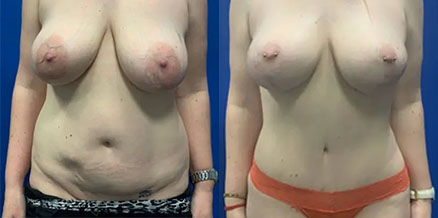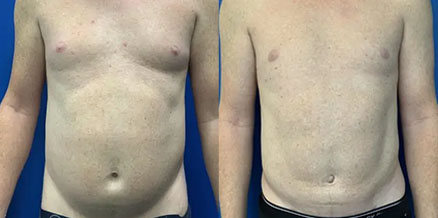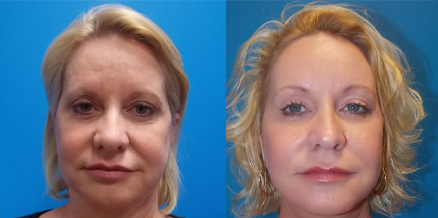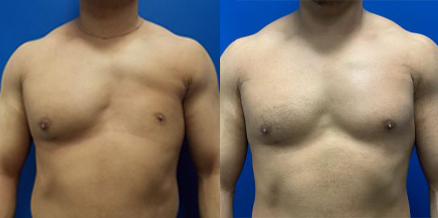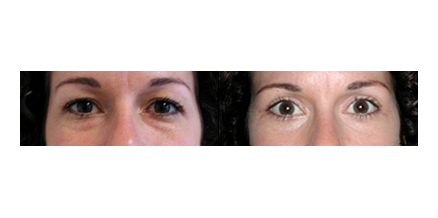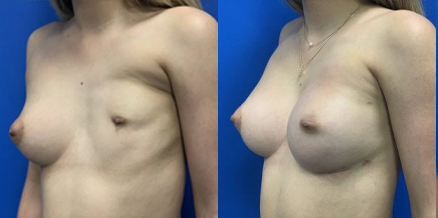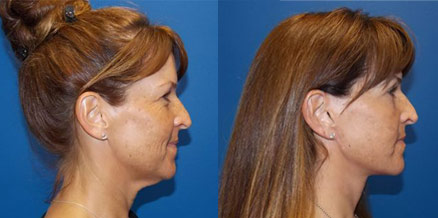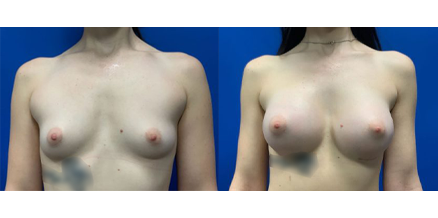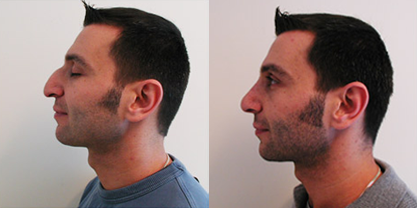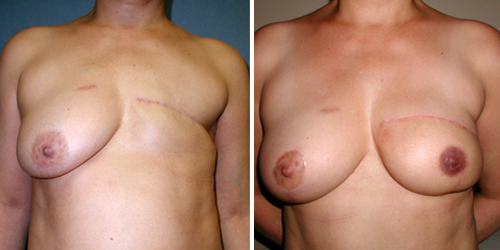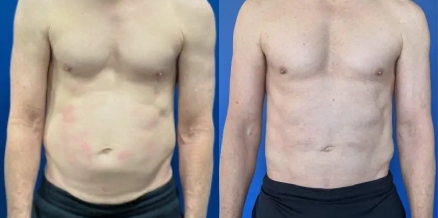Integrative and Functional Medicine
Conveniently located to serve the areas of Beverly Hills, West Hollywood, Los Angeles and Pasadena, CA

Supporting your body with both integrative and functional medicine can help you recover from surgical procedures and improve your long-term health. While functional medicine delves deeply into a disease’s root cause by taking a look into genetics, diet, and lifestyle; integrative medicine promotes overall well-being by blending conventional and complementary therapies. Together, these holistic approaches to wellness provide a robust framework for treatment, recovery as well as prevention, enhancing quality of life. Our holistic therapies prioritize patient-centered care or a personalized approach that prioritizes the needs of individual patients.
Dr. Mossi Salibian is a board-certified plastic surgeon who has helped thousands of patients improve their quality of life with innovative treatments. Dr. Salibian recommends that patients adjust their lifestyles to include integrative and functional approaches to accelerate their recovery and improve their vitality.
Contact our office in Los Angeles–near Beverly Hills–or call (310) 550-0750 to learn more about how integrative medicine can improve your quality of life.
Contents
- 1 About Integrative and Functional Medicine
- 2 Types of Integrative Medicine
- 3 Types of Functional Medicine
- 4 Candidates & Consultation
- 5 Long-Lasting Results
- 6 FAQ
- 6.1 Can integrative and functional medicine replace the care I receive from my traditional doctor?
- 6.2 Can I practice integrative and functional medicine if I am taking prescription medication?
- 6.3 How long will it take to see results from integrative and functional medicine?
- 6.4 Can integrative and functional medicine help me recover from surgical procedures?
- 6.5 Is integrative/functional medicine a long-term plan?
- 7 References
About Integrative and Functional Medicine
Integrative and functional medicine are two overlapping holistic approaches that can help you optimize your health and well-being in a patient-centered mindset. This requires making consistent, healthy lifestyle choices and practicing mindfulness. Integrative medicine involves combining conventional medicine with alternative therapies such as acupuncture, nutritional supplements, herbs, massage, meditation, and yoga to improve your quality of life. Functional medicine addresses the underlying causes of health conditions and the impact of lifestyle factors like diet and glycemic control on a patient’s overall health.
Supporting your body with integrative and functional medicine matters because your habits can have a significant impact on your quality of life. Many everyday products contain chemicals and harmful ingredients that can impact your health in the long run, including various body and face washes, processed and junk foods, nicotine, and other harmful inhalation byproducts. Lifestyle habits and routines, including the personal care products you use, matter; using nontoxic products can help you improve your long-term health by preventing chemicals from building up over time. (1) Integrative and functional medicine are revolutionizing the healthcare landscape with approaches that significantly improve patients’ quality of life. Some areas these holistic methods can address include:
- Stress: Practicing mindfulness and prioritizing your health can lower your stress levels to improve your quality of life.
- Recovery from procedures: Optimizing your health after nonsurgical and/or surgical procedures can enhance your results and make for a smoother recovery.
- Mental and physical well-being: A combination of meditative practices and healthy habits that lead to a better physical lifestyle can help you improve your quality of life.
Patient-Centered Approach
Dr. Salibian recommends that you see your primary care physician (PCP) consistently, and his patient-centered approach considers your needs and preferences. Patient-centered care is focused on empowering patients by helping them actively participate in their care. (2) Dr. Salibian recommends that you have a consistent point of contact throughout your treatment process to ensure optimal results. Having a trusted contact for your health care with a well-established rapport is important for receiving the support you need and is most common in the form of primary care. (3) Although primary care is an important aspect of improving your quality of life, more than 100 million Americans do not receive primary care. (4) Dr. Salibian recommends that patients see a primary care provider (PCP) who can regularly monitor their health and well-being and is a vested partner in their care and well-being together with Dr. Salibian, throughout one’s plastic surgical treatment course and after.
Types of Integrative Medicine
Integrative medicine can help patients support their bodies after cosmetic procedures. There are several different forms of integrative medicine that Dr. Salibian recommends:
- Nutrition: Your diet affects your ability to build healthy muscle mass, and it can also affect your energy levels. For example, it is important to consume anywhere between 1.2gm – 2gm protein / Kg body weight during your perioperative and recovery phase as well as omega-3 fatty acids, probiotics, and a strong glycemic (sugar) control among other nutritional supplements as vitamins and minerals that help with enzymatic function and expedite post-surgical recovery.
- Exercise: You can improve your endurance, mobility, strength, and longevity, and maintain a healthy weight by exercising regularly. Weight loss through exercise is a healthy, natural way to reduce your risk of weight-related conditions. It is recommended that you exercise 300 minutes of moderate exercise per week, five days a week, 60 minutes each with 120 minutes of strengthening exercises built-in per week.
- Lifestyle Changes: Stress management, meditation, yoga, and sleep can reduce and support your body.
Integrative Medicine for Inflammation
We recommend that each of our patients who want to apply this functional lens to their health begin with an allergy test to identify sensitivities to food and the environment. Approximately 33 million Americans have food allergies; (5) identifying the underlying cause of inflammation and digestive conditions can help you improve your quality of life.
Breast Reconstruction & Integrative Medicine
Breast reconstruction is a procedure that restores the breast after a mastectomy. Depending on the technique used, the procedure provides natural-looking and long-lasting results to help patients regain their sense of wholeness and improve their self-esteem. In a recent study, 500 patients with breast or gynecological cancer showed an improvement in their appetite, fatigue, cognitive function, anxiety, and sleep after incorporating integrative medicine. (6)
Recovery After Procedures
Dr. Salibian offers several different types of body contouring procedures to improve your figure that have helped thousands of patients achieve their body goals:
- Arm Lift: Dr. Salibian can remove excess skin from the upper arms, colloquially known as “bat wings,” to reshape them for a smoother, leaner, and more athletic appearance.
- Liposuction: Dr. Salibian can remove pockets of excess fat with gentle suction to sculpt the body for a smoother appearance and balance your body proportions.
- Tummy Tuck: Dr. Salibian can remove excess skin from the abdomen for a flatter and smoother midsection.
- Thigh Lift: Dr. Salibian can remove excess skin from the thighs to sculpt your thighs.
- Mommy Makeover: Dr. Salibian can address the changes to the body after pregnancy with a collection of customizable procedures that include the breast and midsection during one surgical setting.
Dr. Salibian also offers specialized procedures to address Poland Syndrome–a congenital musculoskeletal condition that includes at least the partial absence of the pectoralis major muscle but can also include one breast and/or nipple to be underdeveloped or absent in women. In some cases, the rib cage and/or other muscles may also be underdeveloped, resulting in asymmetry that affects body proportions, personal sense of wholeness, and quality of life. (7) He can also address abnormal male breast growth (gynecomastia) by reducing the male chest and creating the appearance of a more masculine chest and torso.
Types of Functional Medicine
Your lifestyle affects your well-being–your diet, environment, behavior, and social support networks all affect your physical and emotional health. (8) Dr. Salibian can recommend specific lifestyle changes to improve your well-being. Patients typically incorporate several different lifestyle changes into their routines to empower and manage their care, which can include:
- Acupuncture
- Massage
- Physical Therapy
- Chiropractic Care
- Meditation
- Dietary Supplements
- Music Therapy
- Aromatherapy
Dr. Salibian’s practice can help you create a personalized plan that incorporates these all-encompassing lifestyle practices to help your coping mechanisms and empower your self-care.
Functional Medicine Matrix Model
Functional medicine typically involves a combination of lifestyle changes and practices, including both medicines (pharmaceuticals) and dietary supplements (nutraceuticals) to help you improve your quality of life. (9) The balance between the physical and emotional aspects of your lifestyle is important for your vitality.
Candidates & Consultation
During your consultation, Dr. Salibian will go over your medical and surgical history, allergies and medications, and desired surgical goals in-depth and provide you with information about how functional and integrative medicine can apply to your situation. Suitable candidates for integrative medicine would implement lifestyle changes to improve the recovery process after procedures and be able to address:
- Chronic pain
- Stress-related conditions
- Poor sleep
- Fatigue and malaise
It is important for each patient to set aside some time to work on both their emotional well-being and their connection to the world and others, while their body is busy recovering physically. Patients can take ten minutes to meditate daily, go out in nature for a restorative walk, and work on ways to center themselves and strengthen connections with loved ones.
Long-Lasting Results

Patients who incorporate integrative and/or functional medicine into their lifestyles can achieve long-lasting results. In some cases, patients who incorporate functional medicine practices can optimize their health in a way that can reduce the risk of developing diseases later in life. (8) Functional medicine can also address signs of aging in the body to improve your long-term health. Incorporating integrative medicine into your life–your state of mind, spirituality, and sense of community–can also improve your long-term health. (6)
We are highly social creatures, therefore making good choices for ourselves will also inspire others in our circle of friends and loved ones to do the same given the circumstances and challenges unique for each of us.
FAQ
Can integrative and functional medicine replace the care I receive from my traditional doctor?
Functional and integrative medicine can support your body and enhance the care you receive from your primary care doctor, but these practices are typically not considered a replacement. You can incorporate these methods into your lifestyle in conjunction with Western treatments.
Can I practice integrative and functional medicine if I am taking prescription medication?
Anyone can apply an integrative or functional lens to their health. For patients taking prescription medication, these practices and lifestyle changes can improve health, strength, and longevity as well as the ability to deal with challenging treatment protocols or “bad days” and enhance the experience with the “good days.”
How long will it take to see results from integrative and functional medicine?
Many of the benefits of both functional and integrative medicine manifest over time. It is important to practice these healthy lifestyle changes consistently for optimal results.
Can integrative and functional medicine help me recover from surgical procedures?
Many patients choose to incorporate integrative and functional medicine into their treatment plans to improve their quality of life and accelerate their recovery.
Is integrative/functional medicine a long-term plan?
Yes, many patients incorporate integrative and functional medicine into their lifestyles to make long-term, healthy changes that support their long-term well-being.
References
- Alnuqaydan AM. The dark side of beauty: an in-depth analysis of the health hazards and toxicological impact of synthetic cosmetics and personal care products. Frontiers in Public Health. 2024;12. doi:https://doi.org/10.3389/fpubh.2024.1439027
- Reynolds A. Patient-centered Care. Radiologic Technology. 2019;81(2):133-147. doi:https://pubmed.ncbi.nlm.nih.gov/19901351/
- Wang Y, Zheng J, Schneberk T, et al. What quantifies good primary care in the United States? A review of algorithms and metrics using real-world data. BMC Primary Care. 2023;24(1). doi:https://doi.org/10.1186/s12875-023-02080-y
- Mason B. USA Today: A Third of American’s Don’t Have a Primary Care Provider, according to NACHC Report. NACHC. Published March 1, 2023. https://www.nachc.org/usa-today-a-third-of-americans-dont-have-a-primary-care-provider-according-to-nachc-report/
- Food Allergy Research & Education. Facts and statistics. Food Allergy Research & Education. Published 2022. https://www.foodallergy.org/resources/facts-and-statistics
- Gannotta R, Malik S, Chan AY, Urgun K, Hsu F, Vadera S. Integrative Medicine as a Vital Component of Patient Care. Cureus. 2018;10(8). doi:https://doi.org/10.7759/cureus.3098
- Borsuk D, Caouette-Laberge L. Congenital Anomalies of the Breast. Seminars in Plastic Surgery. 2013;27(01):036-041. doi:https://doi.org/10.1055/s-0033-1343995
- Bland JS. Functional Medicine Past, Present, and Future. Integrative Medicine: A Clinician’s Journal. 2022;21(2):22. https://pmc.ncbi.nlm.nih.gov/articles/PMC9173848/
- Hanaway P. Form Follows Function: A Functional Medicine Overview. The Permanente Journal. Published online 2016. doi:https://doi.org/10.7812/tpp/16-109

